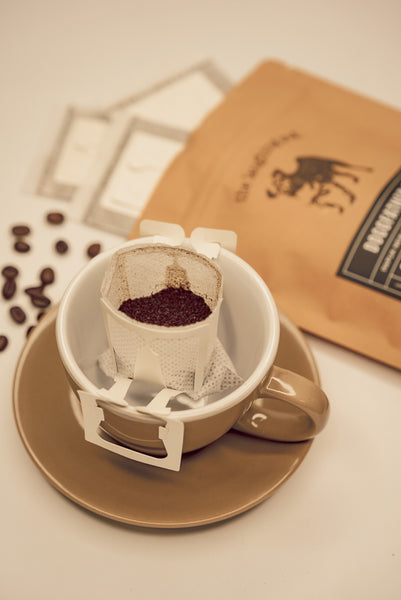Could Your Morning Ritual Be the Key to Preventing Alzheimer's? Learn How This Drink May Hold the Secret to Brain Health for Seniors
Did you know that, according to science, coffee has the potential to lower the risk of cognitive decline as well as Alzheimer's disease and Parkinson's disease due to its caffeine content and antioxidant properties? Imagine the possibilities: you could maintain your sharp memory, stay independent, and continue to enjoy all the activities you love as you grow older. With coffee by your side, the sky's the limit!
But that’s not all.
In this article, we'll delve into the fascinating science behind coffee's potential as a preventive measure against age-related neurological illnesses, provide tips on healthy coffee consumption, and other ways to keep your brain healthy so you can fully enjoy all the benefits of your favourite morning drink.
This is not information you want to miss.
So if you're a coffee lover, or simply someone who values their brain health, then grab a cup of joe and settle in as we take a closer look at how coffee can keep your mind sharp for years to come.

How Coffee Reduces the Risk of Age-Related Cognitive Decline
Scientific studies have found evidence that regular coffee and caffeine consumption over a lifetime can reduce the risk of developing Alzheimer's disease (AD), especially in older adults. While some studies show varied results, the majority of research indicates that drinking coffee or consuming caffeine may be particularly beneficial in the premorbid phase, before the onset of the disease. This suggests that coffee and caffeine may have a protective effect against cognitive impairment associated with ageing[1].
In addition, research has shown that coffee consumption can reduce or delay the development of Parkinson's disease (PD), with caffeine being identified as the likely causal factor. While further research is needed to understand the interaction between caffeine and hormonal therapy in women, the evidence suggests that regular coffee or caffeine intake can help reduce the risk of cognitive impairment associated with PD[2].
According to a recent study published in the National Center for Biotechnology Information[3], consuming coffee with its bioactive compounds, including phenolic compounds such as chlorogenic acids, diterpenes such as cafestol and kahweol, and alkaloids such as caffeine and trigonelline, may offer protection against Parkinson’s Disease. These compounds possess antioxidant properties that help to reduce oxidative stress and prevent damage to neurons in the brain that can lead to the development of Parkinson's Disease.
While more research is needed to fully understand the mechanisms at work, the evidence is compelling enough to suggest that coffee can be a valuable tool in promoting healthy brain function in older adults. As always, it is important to remember that moderation is key and that other lifestyle factors, such as exercise and a healthy diet, also play a role in maintaining cognitive health.

Tips on Healthy Coffee Consumption For Seniors
If you're a senior who loves coffee and can't start your day without a cup of joe, you might be concerned about the potential side effects that coffee can have on your health. While coffee can have many benefits, such as increased alertness and a reduced risk of certain diseases, it can also increase heart rate and blood pressure, disrupt sleep patterns, and cause an upset stomach in some people if consumed in excess.
But don't worry! We have compiled some expert tips to help you enjoy coffee without the drawbacks. Follow these tips to maintain a healthy lifestyle and minimise the unpleasant side effects of your favourite morning drink.
1. Limit caffeine intake: Caffeine is the primary active ingredient in coffee that gives us that energy boost. However, as we age, our body becomes more sensitive to caffeine, and excessive intake can lead to increased heart rate, anxiety, and insomnia. To avoid these negative effects, seniors should limit their caffeine intake to 1-2 cups of regular or decaffeinated coffee per day[4] as generally well-tolerated by most elderly people according to a study published in the European Journal of Clinical Nutrition.
2. Watch for medication interactions: Seniors who are taking medications should be aware of how caffeine may interact with their medication. Caffeine can interact with certain medications, including blood pressure medications, and can cause adverse side effects. Seniors should consult with their healthcare provider before consuming caffeine if they are taking medication.
3. Time your coffee intake: Seniors should avoid consuming coffee too late in the day as it can interfere with their sleep. Consuming coffee in the afternoon or evening can disrupt sleep patterns, leading to insomnia or restless sleep. Seniors should aim to consume coffee in the morning or early afternoon to avoid any negative effects on sleep.
4. Choose quality coffee: Not all coffee is created equal, and seniors should choose high-quality coffee instead of instant coffee, which is made by freeze-drying or spray-drying which often results in a loss of the beneficial compounds found in coffee beans. Instant coffee also often contains additives such as sugars, artificial flavours, and preservatives, which can negate any potential health benefits.
The Laughing Pug offers a wide selection of specialty-grade coffee beans from around the world at a reasonable price. For those who prefer quick and easy preparation without sacrificing taste and quality, our coffee drip bags are an excellent choice. Just add hot water and you can experience flavourful, world-class coffee before stretching or taking a walk on the beach.

Alternatively, our whole beans are perfect for coffee makers and allow seniors to enjoy a freshly brewed cup of coffee at home. By choosing brewed coffee from The Laughing Pug, seniors can enjoy a delicious and healthy cup of coffee, which can give your much-needed caffeine boost throughout the day!
Coffee can be a healthy beverage for seniors when consumed in moderation and with mindful attention to its quality and additives. Seniors who follow these tips for healthy coffee consumption can enjoy their daily cup of joe while avoiding its negative health effects.
Other Ways to Keep Your Brain Healthy
As we get older, it's natural for our brains to slow down a bit. However, just like a muscle, the brain can be trained and strengthened to stay healthy and alert even in our senior years. After all, who says we can't continue to learn, grow, and discover new things throughout our lives? In fact, there are many exciting and engaging ways to keep our brains sharp and prevent cognitive decline as we age. So, if you're ready to boost your brainpower and live your best life as a senior, read on!
In this list, we'll explore ten practical and fun strategies that can help you maintain a healthy, vibrant mind, and keep you feeling sharp and mentally agile for years to come.
1. Get moving: Physical exercise has been shown to improve brain function and promote overall mental well-being. Seniors can engage in activities such as walking, yoga, or swimming.

2. Challenge your brain: Engage in activities that require cognitive processing, such as puzzles, learning a new language, or playing strategy games. This will help keep the brain active and sharp.
3. Socialise: Maintaining social connections is important for seniors' mental health. Engage in activities with family and friends or join social clubs.
4. Get enough sleep: Sleep is critical for brain health. Seniors should aim for seven to eight hours of sleep per night to allow the brain to rest and rejuvenate.
5. Eat a healthy diet: A diet rich in fruits, vegetables, and whole grains can improve brain function and protect against cognitive decline. Seniors should also aim to limit their intake of processed foods and saturated fats.
6. Stay hydrated: Dehydration can lead to cognitive impairment. Seniors should aim to drink at least eight glasses of water per day to keep their brain healthy.
7. Learn something new: Learning new things can promote brain plasticity and cognitive flexibility. Seniors can try new hobbies, take classes, or travel to new places to keep their brain engaged.

8. Manage stress: Chronic stress can damage the brain and lead to cognitive decline. Seniors should engage in activities such as meditation, deep breathing, or yoga to manage stress.
9. Get regular checkups: Seniors should have regular checkups with their healthcare providers to manage chronic health conditions and identify any potential issues that could affect brain health.
10. Keep a positive attitude: A positive attitude can promote brain health and improve overall well-being. Seniors should focus on the good things in life and maintain a sense of purpose and optimism.

Keeping our brains healthy and alert is crucial as we age. With the right mindset and some simple strategies, seniors can continue to lead fulfilling and vibrant lives, full of new experiences, insights, and discoveries. From staying active and engaged with others to challenging ourselves with new activities and habits, there are so many ways to keep our brains sharp and healthy. So, whether you're looking to prevent cognitive decline or simply want to stay mentally fit and agile, these tips are a great place to start.
Remember, it's never too late to take care of your brain and unlock its full potential. So why wait? Start implementing these strategies today and enjoy a vibrant and fulfilling life at any age!
Conclusion
Coffee has been found to be a powerful tool in preventing cognitive decline and reducing the risk of developing illnesses such as Parkinson's and Alzheimer's disease. For seniors looking to fully benefit from these advantages, it is important to follow healthy coffee consumption tips, such as avoiding excessive caffeine intake and adding too much sugar or cream to their coffee.
And when it comes to the best coffee experience, look no further than The Laughing Pug! Our wide selection of world-class coffee that comes in pour-over drip bags and whole beans has rich and flavorful notes that are sure to delight the senses.
With the help of The Laughing Pug and these healthy coffee consumption tips, seniors can enjoy a delicious and beneficial coffee experience while promoting their cognitive health. Check out The Laughing Pug coffee today and start enjoying all the benefits of an additive-free and perfectly brewed cup of coffee!


Leave a comment